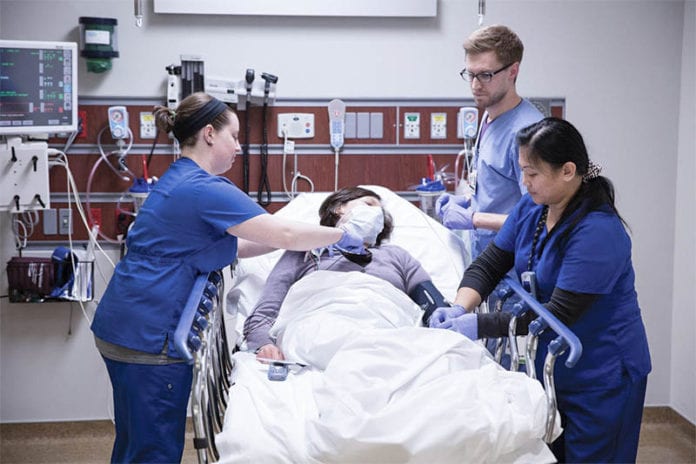A first-of-its-kind study from Emergency Nurses Association (ENA), published online in the Journal of Emergency Nursing, finds that moral distress in the emergency department is an experience distinct to those working in that specific environment, compared to nurses in other specializations.
Moral distress occurs when someone is constrained from taking the action he or she believes is right. Authors of the study found that unlike moral distress found in other nurse settings, the causes of moral distress in emergency nurses are environment-driven, not incident driven. Emergency departments do not have a typical patient or day, which means emergency nurses may not have time to build relationships with patients. A nurse's interaction with a patient in the ED is measured in minutes or hours, not days like other nurse settings.
"Emergency nursing is life-saving nursing and requires an environment where nurses can act in the best interest of their patients with more consideration of time constraint challenges," said ENA President Matthew F. Powers, MS, BSN, RN, MICP, CEN. "This study is an excellent beginning to understand the distinct causes of moral distress in emergency nurses and how to address it."
Excessive documentation and a focus on time-based metrics, inadequate or unsafe staffing, and patients who are frequent users of the ED such as those with addictions or behavioral dis-orders, were among the specific environmental factors described by the participants as caus-ing moral distress. These environmental limitations of emergency departments cause moral distress for nurses who feel they are not able to provide adequate care to their patients.
"Focus group participants expressed a common desire to provide high-quality, compassionate care to their patients but also described dysfunctional and challenging aspects of the care environment that contribute to feelings of moral distress by impeding their ability to provide safe, effective patient care," Lisa A. Wolf, PhD, RN, CEN, FAEN, and coauthors wrote. "The implications for emergency nurses as individuals, as well as for the profession, are significant and demand attention from ED and hospital administrators, but also from staff."
Until now, moral distress research in nursing was limited to identifying needs specific to nurs-es outside emergency settings. ENA experts advise that future research should focus on the development and validation of an instrument to measure moral distress in the ED setting, as well as strategies to help emergency nurses cope with this moral distress.
Share your thoughts on this important topic in the comments section below.



After many years of working in healthcare where triaging and caring for patients in a rapid paced environment were beginning to take the wind out of my sail, I decided to flip the switch. I had to change my thought pattern if I were to survive; if I were to stay in the nursing field.
And so I did. I began to see each patient encounter as my 5 minutes, 1 hour, or even 5 hours, of using my skills and expertise as precisly and effectively as possible with the tools available. It became my own personal challenge. It stimulated me in ways I hadn’t thought of, and it helped me get through many 12 shifts of feeling like I was spinning in circles. I gave it my all for that small window in time, to the best of my abilities, with the tools that I had and the knowledge and training I owned. Any service that I could provide the patient will always be better then any third world, battle ridden, civil unrest country. Do not shoot for perfection every minute of the shift. Do what you can and do it well. Touch the lives you can and leave the rest for the your relief. Smile a lot. It lets the patient know you care.